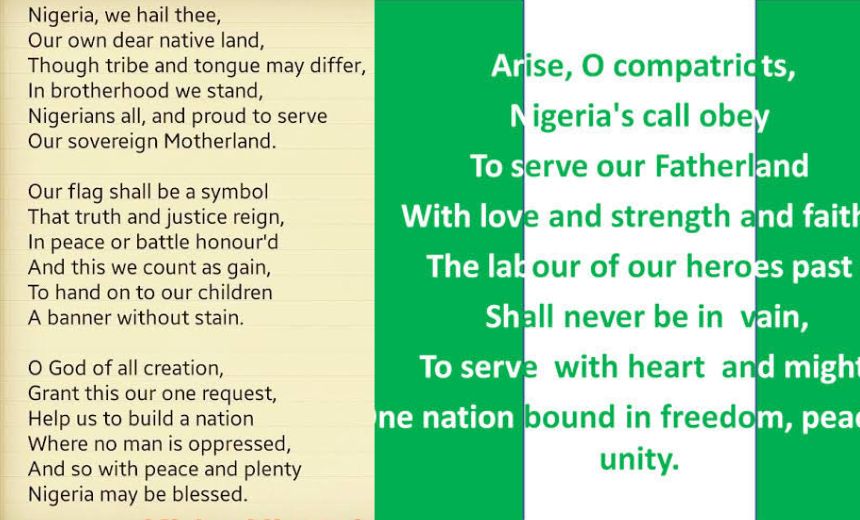Now what’s the significance of a National Anthem? On Thursday, a bill proposing that Nigeria reverts to its old national anthem, “Nigeria, We Hail Thee’ passed its third reading at the House of Representatives and its second reading in the Senate. It left many Nigerians pondering the importance of a National Anthem.
The former and the Current Nigerian anthems. The old one, remembered fondly by some as “Nigeria We Hail Thee” was adopted in 1960 upon Nigeria’s independence. The anthem’s lyrics were written by Lillian Jean Williams, a British expatriate who lived in Nigeria when it achieved independence. While the music was composed by Frances Berda, It speaks to a country that though made up of different tribes, ethnic groups and religions, stands as one indivisible nation. Its reign lasted 18 years. In 1978, Nigeria changed its national anthem to “Arise, O Compatriots” under the military administration of General Olusgeun Obasanjo.
The anthem, was originally written as a poem by five different writers, and a former police officer. Benedict Odiase, who served in the Nigeria Police Force from 1954 to 1992 was also the Music Director of the Nigerian Police Band. He was tasked with turning the poem into an anthem.
“Arise, O Compatriots” promotes national ownership, as the composer of the previous anthem was a British expatriate.”
But those who support the old anthem argue that it carries a historical significance and a sense of nostalgia that could inspire a renewed sense of patriotism among Nigerians. They believe that reinstating the old anthem might rekindle a collective memory of the country’s foundational aspirations and unity.
However, critics are skeptical about the effectiveness of such a symbolic gesture in addressing the profound economic and social challenges currently facing the nation.
The speed with which the bill is racing through its readings at the National Assembly suggests it will be passed into law soon, but how many people can remember or even sing it.
Whichever way the decision goes, this is a discussion that has left many Nigerians pondering if reverting to an old national anthem can indeed translate to tangible improvements in their daily lives with the country facing rising unemployment, inflation, and insecurity.
(Editor: Anoyoyo Ogiagboviogie)








